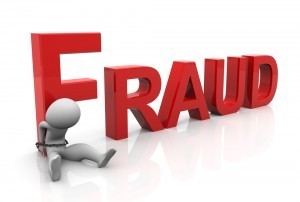Stockbrokers and investment advisers manage trillions of dollars of money. While some of that is for institutional investors, much of it belongs to ordinary investors who rely on their advisors for honest advice and quality pricing.
The SEC regulates most investment advisers but in 2013, an amendment to Dodd Frank shifted oversight of smaller and medium advisors with less than $100 million of assets under advisement to the states.
This month the North American Securities Administrators Association (NASAA) revealed a 2-year compliance study. Because the states are now overseeing an estimated 2100 new advisory firms since 2013, the numbers are somewhat difficult to compare. There are some useful trends shown by the data, however.
Overall compliance seems to have improved theoretically meaning less stockbroker fraud cases. All the news isn’t rosy, however.
According to the NASAA, about 75% of the state regulated advisory firms had significant problems documenting the suitability of client recommendations.
Stockbrokers and advisors have a legal duty to only recommend investments that are suitable for their client’s particular risk tolerance, investment objectives and financial needs. The industry’s suitability rules work hand-in-hand with the Know Your Customer rule.
An advisor can’t make suitable recommendations without knowing a great deal of information about his or her client. How much money does she have saved for retirement? Is he an aggressive or conservative investor? What is more important, income or capital appreciation? Does she need immediate access to her funds?
Critical to the compliance equation is proper “know your customer” and suitability documentation, something the NASAA says that three out of four advisory firms are lacking.
If you lost money because of unsuitable recommendations or other types of stockbroker fraud, the lack of documentation may work to your advantage and can help get you back your hard earned money.
Some bad and lazy brokers try to create after the fact suitability documentation but that is a violation too and often backfires. There is also a real chance that dishonest advisors will dig a deeper hole by trying to change or forge their paperwork.
Stockbroker fraud claims are often down during a bull market. Rising stock values hides many dishonest acts. Now that the market may be entering a correction phase, we expect to see many more instances of stockbroker fraud and illegal activity.
If you believe that an advisor has made unsuitable investment recommendations, give us a call. Most cases can be handled on a contingent fee basis. In many instances, cases can be completed in one year or less.
Need more information? Give us a call. For more information contact attorney Brian Mahany at or by telephone at (direct).
MahanyLaw – America’s Stockbroker Fraud Lawyers
[Services handled throughout the United States. Minimum loss size generally $250,000. Depending on the brokerage or advisory firm, we sometimes partner with other law firms with similar claims to obtain leverage.]


